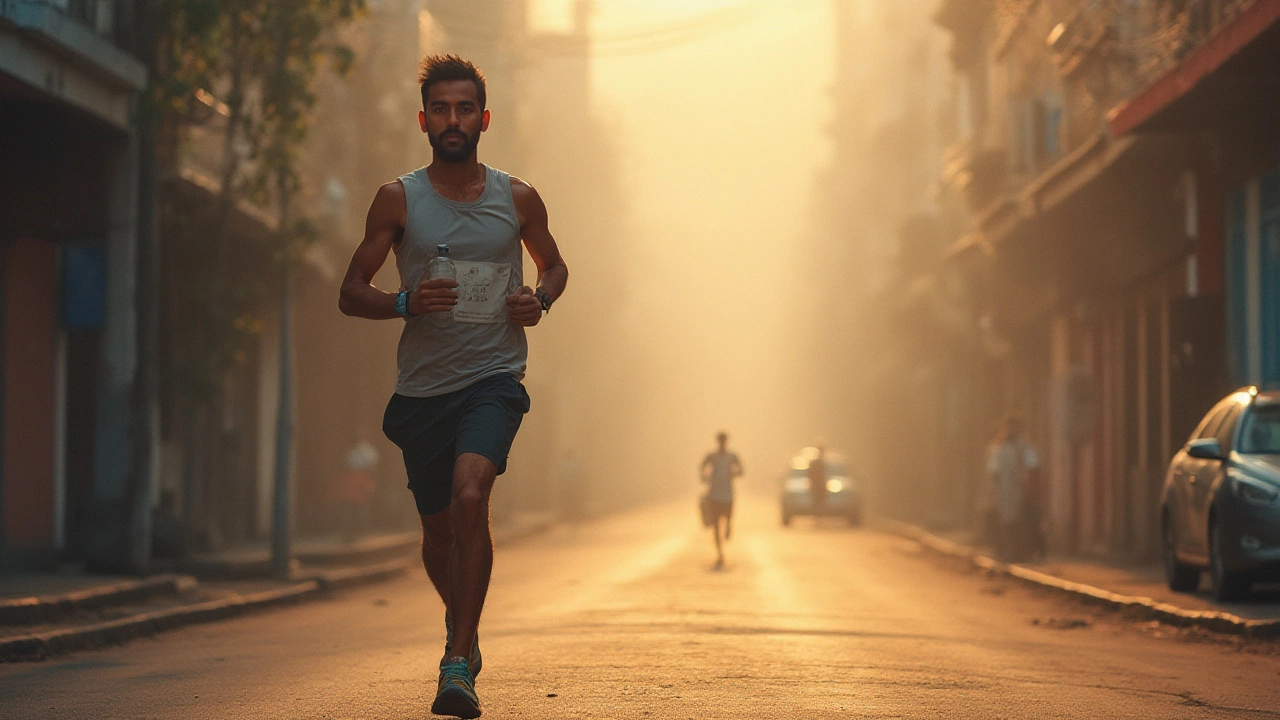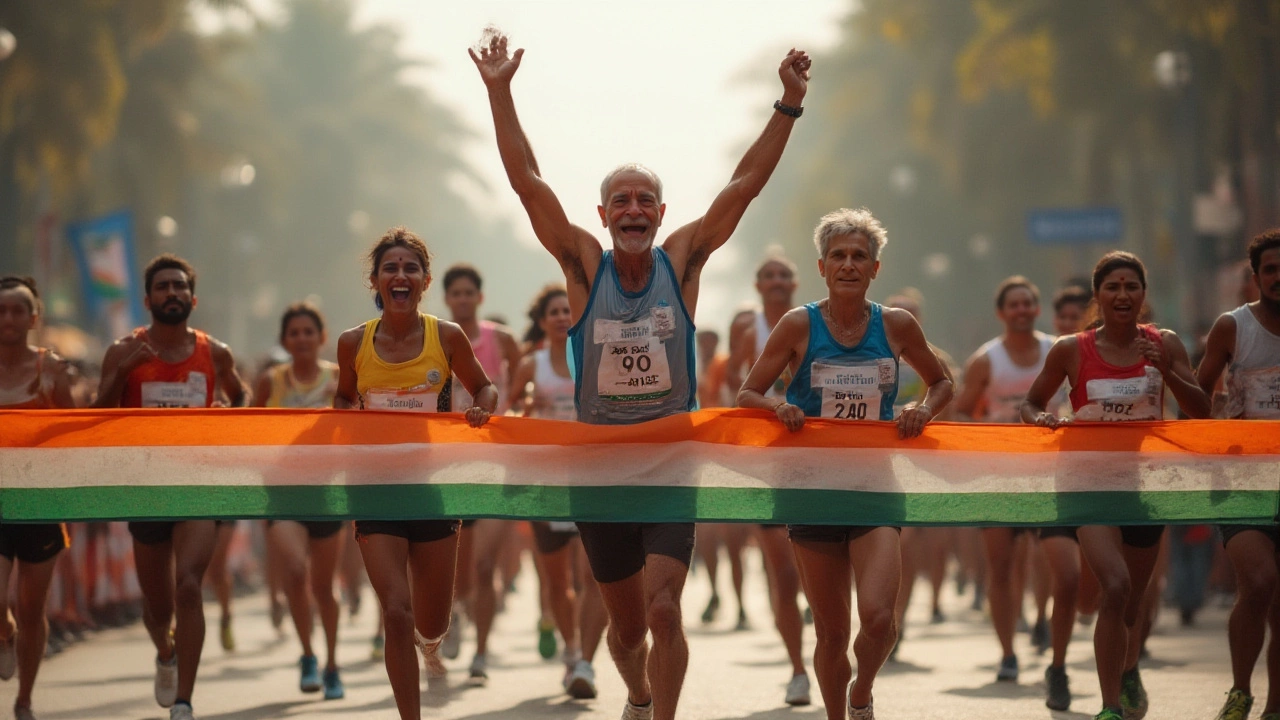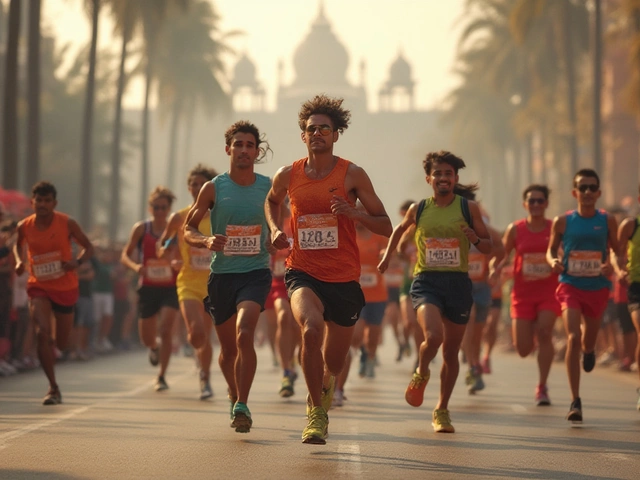Picture this—you’re hours into a marathon, legs aching, mind wrestling with doubts. The finish clock looms ahead. It flashes: 6:59:58… 6:59:59… 7:00:00. Some runners are already on their second post-race snack. Others are still grinding it out. Here’s the wild part: for many, finishing a marathon in seven hours is a truly gutsy feat, while for others, it’s the bare minimum. So, is 7 hours actually good for a marathon? Or is it something people just squeeze by on? Let’s get brutally honest about what a 7-hour marathon really means—on your watch and in your mind.
What Does a 7-Hour Marathon Time Mean?
No matter how you slice it, running, walking, or surviving 42.195 kilometers is a major challenge. But let’s put that 7-hour mark under a microscope. Most popular marathons in North America (think: Chicago, New York, Toronto Waterfront) usually have official cutoffs between 6 and 7 hours. That means if you come in later than that, you might find support crews packing up, water stations drying up, and that finishing medal switching from ‘amazing’ to ‘bittersweet participation memento.’
So, a 7-hour finish? That’s right on the razor’s edge. Most race directors design their cutoffs this way—if you hold roughly a 10-minute per kilometer pace, you’ll squeak in. For context, a brisk walk is about 8-10 minutes per kilometer. No running at all? At a determined walking pace, you still have to keep moving. You cannot dawdle. If you want an exact number, 7 hours for a marathon equals a pace of about 9:59 per kilometer or 16:02 per mile. That’s steady effort, not a stroll.
Here’s a funny thing: thousands of first-timers (and let’s be honest, slower “back of the pack” runners) make it their personal Everest to stay under this barrier. It’s not just about the medal; it’s about beating “the bus”—a dreaded van that collects stragglers if they fall behind the threshold. Ask anyone who’s run a big city marathon, and they’ll tell you about the fear of the sweeper vehicle.
Now, if you hit 7 hours or just above, you’re still covering the same distance as the Olympic champion. The difference is the challenge lasts more than twice as long, mentally and physically. Elite runners log their times faster than some of us get through breakfast; seven hours means you’re on your feet through almost an entire workday.
Ultimately, ‘good’ is a moving target here. For some, it’s qualifying for Boston. For you, maybe it’s surviving the endless slog to the finish. Both are legit. 7 hours is good if it’s the best your body and life allow.
Why So Many People Aim for 7 Hours
Take a look at race results from any major marathon. There’s always a big spike in finishers around the 6:30 to 7:00 hour mark. Why? Because a 7-hour time is the sort of line in the sand everyone talks about: “I just want to beat the sweep bus,” “I just want a medal,” “I just want to finish, period.” It’s practical and the bare minimum needed at lots of events. Some races, including New York and Chicago, start clearing their courses at the 7-hour mark. That means, at 7:01, traffic cones come up, roads open, and whatever is left of your race feels a little less magic. That’s a big motivation to push through the final stages and avoid becoming unofficial halfway through your last mile.
For the average runner? Seven hours is a pretty standard finishing line. Marathon statistics from the US and Canada in recent years show most first-timers come in somewhere between 4:30 and 6:00, but there are always tons of people just hoping to make cutoff. Health issues, injuries, under-preparation, or even bad race day weather can turn anyone’s goal into “just finish before I get swept.” Plenty of folks—new parents, folks balancing busy jobs, or older runners—find seven hours to be a reasonable, if stubborn, goal.
Then there’s what happens on the course. The last third of a marathon is where everyone fights the wall. If you’ve ever shuffled past the 30K sign, shins burning, you know the ‘death march’ feeling. A big chunk of the seven-hour crew are power-walking the last ten or twelve kilometers—fueled not by energy gels, but raw stubbornness.
There’s a lot of pride in being among the last finishers. You’re cheered by folks still packing up the barricades. Your medal weighs the same as the one a sub-three runner grabs, but you earned it over nearly triple the time. And let’s not forget charity runners or folks running for deeply personal reasons: every marathon is someone’s triumph over impossible odds.
Is it “good”? Ask anyone who’s spent seven hours on their feet, and they’ll tell you: Hell yes.

What the Data Says and How Runners Feel About It
You might be surprised by official stats. According to results from the World Marathon Majors, the average finishing time for men is between 4:10 and 4:30, and for women between 4:35 and 4:55. But those numbers hide a huge spread. In big events, the last thousands of finishers often come in after 6:30. And local races with extended cutoffs—or no cutoffs—see more folks taking seven, eight, even ten hours if allowed. In fact, the Athens marathon, one of the slowest mass-participation races, often sees finishers after the 7-hour mark still proudly crossing under the historic archway.
There’s also the question of inclusivity. Over the last decade, marathons have shifted to welcome more back-of-the-pack runners and walkers. The New York City Marathon has the “sweep bus,” but it also has a tradition of greeting the last finisher with as much celebration as the winner. In Calgary, I’ve seen finish-line volunteers stay late, cheering for anyone who drags themselves in, no matter how long it takes. The running world is slowly learning that heroics don’t just happen among the speedy.
It’s worth mentioning: marathon cutoffs in Canada typically land between 6 and 7 hours for city races, while smaller local races might offer more generous timeframes if they don’t have to reopen major roads. If you’re aiming for 7 hours, check your race’s fine print for language around support cutoffs and medals—some races hand out hardware only to ‘official’ finishers.
And you’ll hear some snooty nonsense in the running community about what a “real” marathon time is. Ignore the gatekeepers—they’re missing the entire point. There’s a running joke that most marathon training happens among mid-pack and back-of-packers, since elites only have to be on their feet for two to three hours. You, meanwhile, might be grinding it out for an entire Saturday.
Ask people who coach first-timers and they’ll agree: finishing is the hardest part, no matter the time.
How to Prepare for a 7-Hour Marathon and Actually Have a Good Time
So you’re staring down a marathon and you figure seven hours is within reach. What matters? Way more than miles per hour. Start with your gear. Good shoes will become your best friend—it’s cliché, but a pair that’s comfy at the store can turn to evil after four hours. Go for tried-and-tested brands, break them in, and always bring Band-Aids or tape for the inevitable blisters.
Now, let’s talk about training. No need to copy elite runners’ plans. If you plan to walk-run or power walk most of the event, build up to 30+ kilometer long days, even if it means walking 5-6 hours at a stretch. Back-to-back long weekends are also gold—walking or jogging a few hours two days in a row shows your legs what to expect. Think less about pace, more about relentless forward motion.
Nutrition and hydration shouldn’t be left to chance. Practice eating and drinking on your training treks. Seven hours is long enough for breakfast, lunch, and snacks. Don’t rely only on gels—mix in salty food, bars, or bananas. At that pace, stomach issues take down as many runners as wonky knees. Hydration matters too; over seven hours, electrolyte loss can make you dizzy or lead to dreaded “marathon brain.”
Mental preparation is your real edge. You’ll outlast not just runners, but sunlight, music playlists, and every spare joke you’ve got for yourself. Get ready for stretches where you question your life choices, or when cheering crowds thin. If you need a boost, carry notes from friends and family, or promise yourself that finish line burger. Visualize the clock creeping toward 7:00 and what beating it will mean. You’ll need reminders that a marathon is personal, not just public; your reasons can carry you farther than any official pace group.
Pacing is key. Start slow—slower than you think. Going out hard in excitement almost always leads to an ugly last third. Walk up hills, run the flats, and be disciplined about sticking to a routine. If your event has pace groups for six or seven-hour finishers, stick with them for camaraderie and steady encouragement.
- Invest in anti-chafe balms—seven hours means miles of potential misery otherwise.
- Study your course map to know where aid stations and bathrooms are. Arrive early, smile at volunteers, and thank them—they’re out there hours for you.
- Practice with your race gear. Wear your outfit on long training days, carry your bottle or pack, and don’t try new stuff on race morning unless you love gambling.
- Have a support crew if possible, or at least someone ready to send a motivational text halfway through.
And above all, be proud of your finish time. The so-called “average” runner isn’t juggling your life, your health, or your obstacles. Your marathon time is yours alone—and seven hours is still epic, medal-worthy, and absolutely a reason to call yourself a marathoner.


